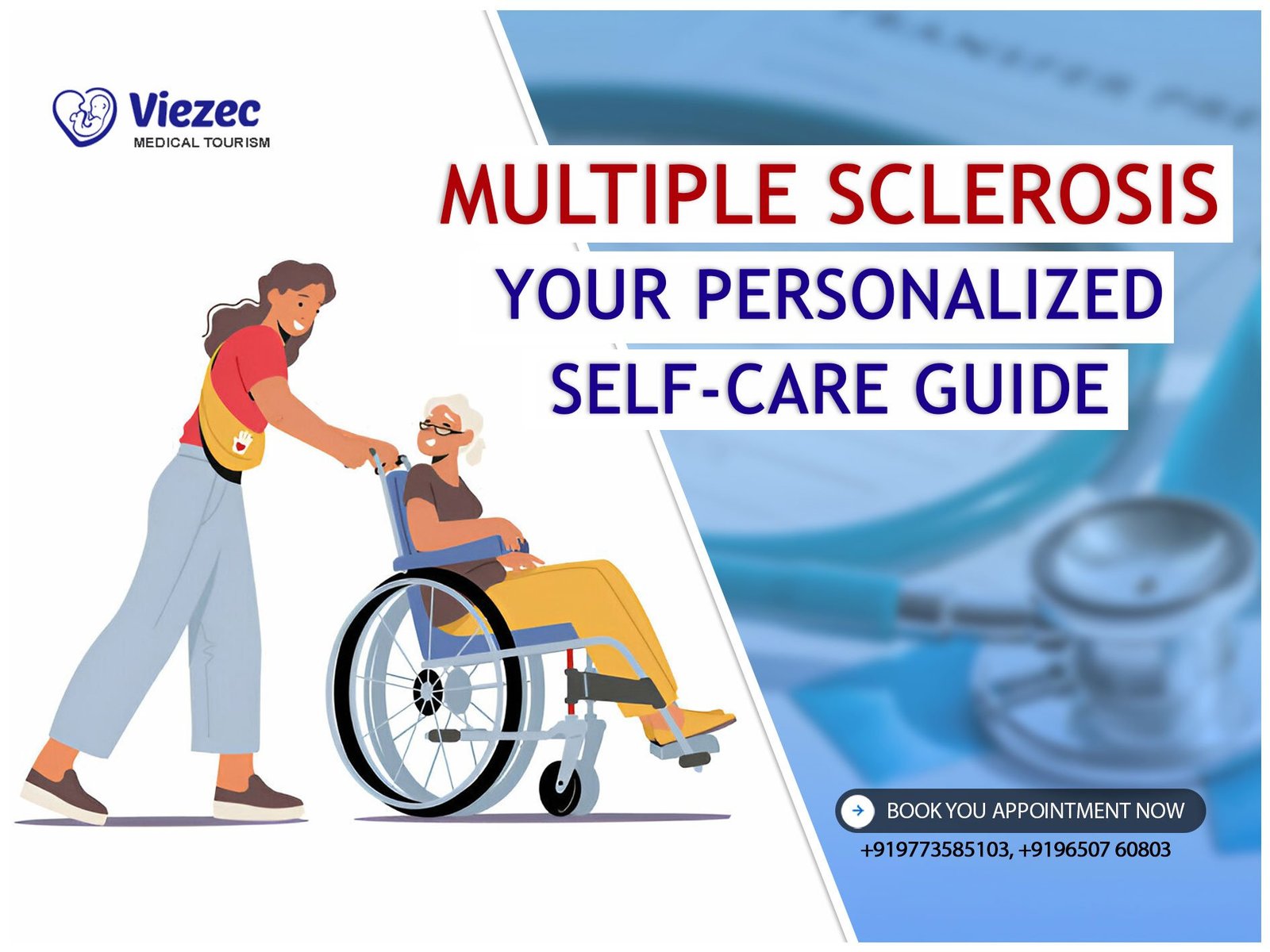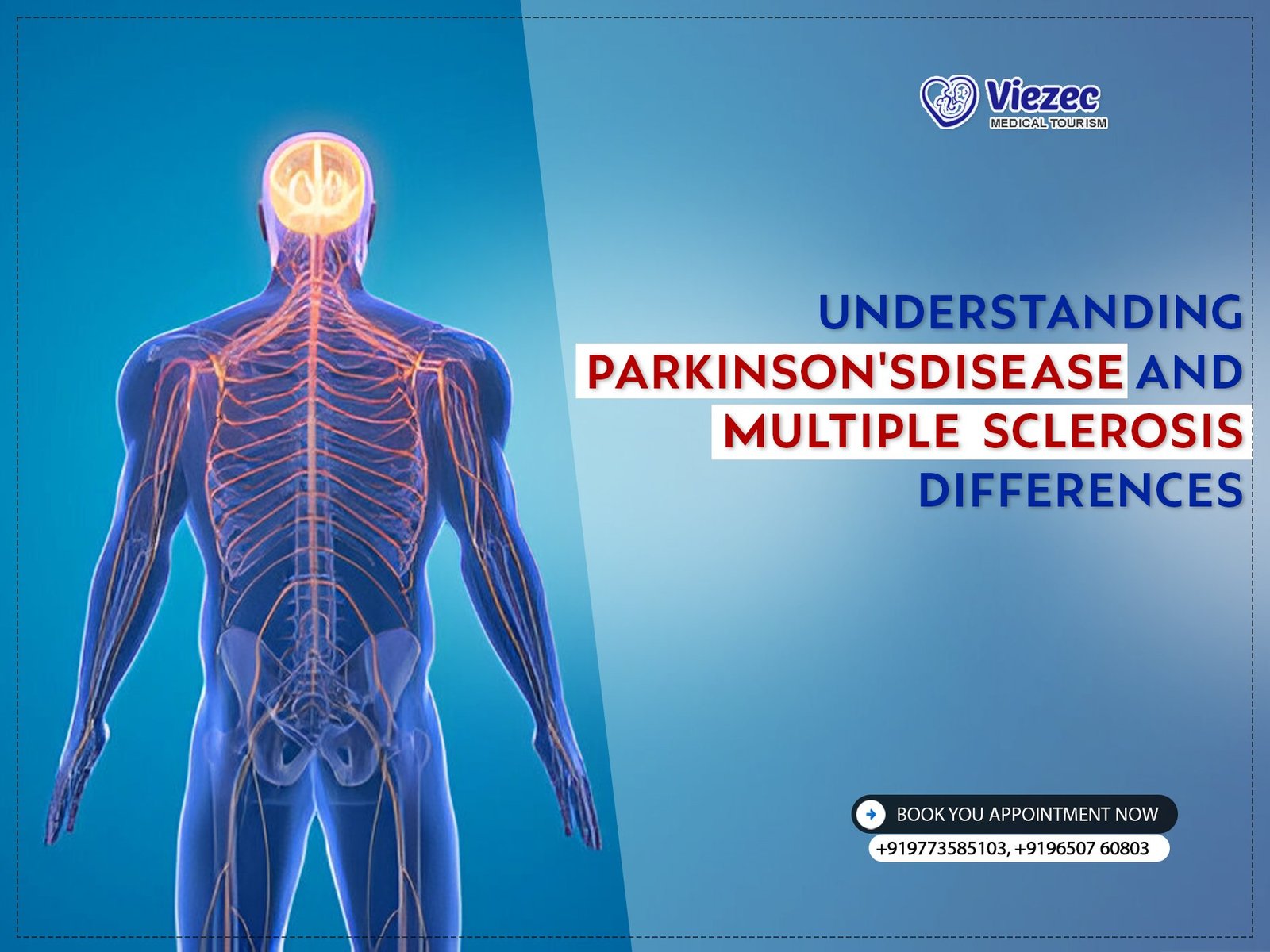Multiple Sclerosis (MS) is a complex autoimmune condition that affects the central nervous system, specifically the brain and spinal cord. It occurs when the immune system mistakenly attacks the myelin sheath, a protective covering that surrounds nerve fibers, leading to inflammation, scarring (sclerosis), and disruptions in nerve signal transmission.
What is Multiple Sclerosis?
At its core, MS is a chronic and unpredictable disease with varying symptoms and levels of disability. Its exact cause remains unknown, but researchers believe it involves a combination of genetic, environmental, and immunological factors. Symptoms may range from mild, such as numbness or tingling in the limbs, to severe, including paralysis or loss of vision.
Types of Multiple Sclerosis
- Relapsing-Remitting MS (RRMS): This is the most common form of MS, characterized by periods of relapse or exacerbations followed by partial or complete remission of symptoms.
- Primary-Progressive MS (PPMS): In this type, symptoms gradually worsen over time without distinct relapses or remissions.
- Secondary-Progressive MS (SPMS): Initially starting as RRMS, SPMS involves a steady progression of symptoms with or without relapses and remissions.
- Progressive-Relapsing MS (PRMS): This is the least common type, featuring a steadily worsening disease course with occasional relapses.
Causes and Risk Factors
While the precise cause of MS remains elusive, several factors are thought to contribute to its development, including genetic predisposition, environmental triggers (such as viral infections or vitamin D deficiency), and immune system dysfunction. Risk factors for MS include family history, age, sex (women are more likely to develop MS), and certain environmental factors, such as geographic location and smoking.
Symptoms and Progression
The symptoms of MS can vary widely from person to person and may change over time. Common symptoms include fatigue, muscle weakness, coordination and balance difficulties, sensory disturbances, cognitive impairments, and emotional changes. The progression of MS is unpredictable, with some individuals experiencing mild symptoms that do not significantly impact their daily lives, while others may face severe disability and challenges with mobility and independence.
Diagnosis and Treatment Options
Diagnosing MS can be challenging, as there is no single test that definitively confirms the condition. Instead, healthcare providers rely on a combination of medical history, neurological examinations, imaging tests (such as MRI scans), and laboratory tests to make a diagnosis. Once diagnosed, treatment aims to manage symptoms, slow disease progression, and improve quality of life. Treatment options may include disease-modifying therapies (DMTs), symptom management strategies, rehabilitation therapies, and lifestyle modifications.
Navigating Your Diagnosis
Receiving a diagnosis of MS can be overwhelming and emotional. It’s essential to take proactive steps to cope with the diagnosis and build a strong support network to help you navigate the challenges ahead.
Coping with the Initial Diagnosis
The initial diagnosis of MS can evoke a range of emotions, including shock, fear, sadness, and uncertainty about the future. It’s essential to allow yourself time to process these emotions and seek support from loved ones, healthcare professionals, and mental health professionals if needed. Connecting with other individuals living with MS can also provide valuable insights and encouragement.
Building Your Support Network
Navigating MS is not a journey you have to face alone. Building a robust support network can provide emotional, practical, and informational support throughout your MS journey. Your support network may include:
- Family and Friends: Lean on your loved ones for emotional support, understanding, and assistance with daily tasks when needed.
- Healthcare Professionals: Develop trusting relationships with your healthcare team, including neurologists, nurses, therapists, and other specialists who can provide expert guidance and personalized care.
- Support Groups and Communities: Joining MS support groups, either in-person or online, can connect you with others who understand what you’re going through, share experiences and coping strategies, and provide a sense of belonging and solidarity.
Understanding Your Treatment Plan
Once diagnosed with MS, you and your healthcare team will work together to develop a comprehensive treatment plan tailored to your individual needs and preferences. Your treatment plan may include:
- Disease-Modifying Therapies (DMTs): These medications are designed to modify the course of the disease by reducing the frequency and severity of relapses, slowing disease progression, and preventing new lesions from forming in the central nervous system.
- Symptom Management Strategies: Addressing specific symptoms of MS, such as fatigue, pain, spasticity, bladder and bowel dysfunction, cognitive impairments, and mood disturbances, may require a combination of pharmacological and non-pharmacological interventions.
- Lifestyle Modifications: Making healthy lifestyle choices, such as maintaining a balanced diet, engaging in regular exercise, managing stress, getting adequate rest, and avoiding smoking and excessive alcohol consumption, can help optimize your overall health and well-being.
Developing Your Self-Care Routine
Self-care plays a crucial role in managing MS and promoting overall health and well-being. By prioritizing self-care activities tailored to your specific needs and preferences, you can enhance your quality of life and better cope with the challenges of living with MS.
Importance of Self-Care in MS Management
Self-care encompasses a broad range of activities and practices aimed at nurturing your physical, emotional, cognitive, and social well-being. In the context of MS, self-care is essential for:
- Managing Symptoms: Self-care practices can help alleviate symptoms such as fatigue, pain, muscle stiffness, depression, and anxiety, improving your overall comfort and quality of life.
- Promoting Independence: By taking an active role in managing your health and well-being, you can maintain a sense of control and autonomy in your life, despite the challenges posed by MS.
- Enhancing Resilience: Engaging in self-care activities can strengthen your resilience and coping skills, enabling you to better navigate the ups and downs of living with a chronic illness.
Tailoring Self-Care to Your Needs
Self-care is not one-size-fits-all; it’s essential to tailor your self-care routine to address your unique needs, preferences, and limitations associated with MS. Consider the following dimensions of self-care:
- Physical Self-Care: Focus on activities that promote physical health and mobility, such as exercise, proper nutrition, adequate rest, and symptom management strategies.
- Emotional Self-Care: Take steps to nurture your emotional well-being, such as practicing self-compassion, mindfulness, relaxation techniques, and seeking support from loved ones or mental health professionals.
- Cognitive Self-Care: Engage in activities that stimulate your cognitive abilities and mental acuity, such as brain-training exercises, learning new skills, and practicing memory and attention exercises.
- Social Self-Care: Cultivate meaningful connections with others and engage in social activities that bring you joy, fulfillment, and a sense of belonging, whether it’s spending time with family and friends, participating in community events, or joining support groups.
Creating a Personalized Self-Care Plan
Developing a personalized self-care plan involves identifying your unique needs, setting realistic goals, and implementing strategies to support your physical, emotional, cognitive, and social well-being.
- Setting Realistic Goals: Start by identifying specific areas of your life that could benefit from additional self-care and setting achievable goals that align with your values, priorities, and abilities.
- Establishing Healthy Habits: Incorporate healthy habits into your daily routine, such as regular exercise, balanced nutrition, adequate sleep, stress management techniques, and relaxation practices.
- Adapting to Changes Over Time: Be flexible and open to adjusting your self-care plan as needed based on changes in your symptoms, lifestyle, and personal circumstances. Regularly evaluate your progress and make modifications as necessary to ensure ongoing effectiveness and sustainability.
Nutrition and MS
Nutrition plays a significant role in managing MS symptoms, supporting overall health and well-being, and optimizing disease management outcomes. By making informed dietary choices, you can help reduce inflammation, support immune function, maintain a healthy weight, and manage specific symptoms associated with MS.
Role of Nutrition in MS Management
A balanced and nutritious diet is essential for supporting overall health and well-being, especially for individuals living with chronic conditions like MS. Proper nutrition can help:
- Reduce Inflammation: Certain foods possess anti-inflammatory properties that can help mitigate inflammation in the body, which is believed to play a role in the development and progression of MS.
- Support Immune Function: The immune system relies on various nutrients to function optimally, including vitamins, minerals, antioxidants, and phytonutrients, which can help regulate immune responses and promote immune system balance.
- Maintain a Healthy Weight: Maintaining a healthy weight is important for managing MS symptoms, as excess weight can exacerbate fatigue, mobility issues, and other health complications associated with the condition.
Foods to Include in Your Diet
When planning your meals and snacks, focus on incorporating nutrient-rich foods that provide essential vitamins, minerals, antioxidants, and anti-inflammatory compounds beneficial for MS management.
- Anti-Inflammatory Foods: Include foods rich in anti-inflammatory compounds, such as fruits, vegetables, leafy greens, berries, nuts, seeds, legumes, whole grains, fatty fish (e.g., salmon, mackerel, sardines), olive oil, and spices (e.g., turmeric, ginger, garlic).
- Omega-3 Fatty Acids Sources: Omega-3 fatty acids, found in fatty fish, flaxseeds, chia seeds, walnuts, and hemp seeds, have anti-inflammatory properties and may help reduce MS-related inflammation and improve cognitive function.
- Vitamin D-Rich Foods: Vitamin D deficiency is common in individuals with MS and may exacerbate symptoms. Include vitamin D-rich foods in your diet, such as fortified dairy and plant-based milk products, fatty fish, egg yolks, and fortified cereals and juices.
Foods to Limit or Avoid
In addition to incorporating beneficial foods into your diet, it’s also essential to limit or avoid certain foods and ingredients that may exacerbate inflammation, contribute to weight gain, or worsen MS symptoms.
- Potential Trigger Foods: Some individuals with MS may have sensitivities or intolerances to certain foods, such as gluten, dairy, processed meats, and artificial additives. Pay attention to how specific foods affect your symptoms and consider eliminating or reducing them from your diet if necessary.
- High-Sugar and Processed Foods: High-sugar and processed foods can contribute to inflammation, disrupt blood sugar levels, and lead to weight gain and metabolic imbalances. Minimize your intake of sugary snacks, desserts, sugary beverages, processed snacks, and refined carbohydrates.
- Saturated Fats and Trans Fats: Limit your consumption of foods high in saturated fats and trans fats, such as red meat, full-fat dairy products, fried foods, baked goods, and processed snacks. Instead, opt for healthier sources of fats, such as olive oil, avocado, nuts, seeds, and fatty fish.
Exercise and Physical Activity
Regular exercise and physical activity play a crucial role in managing MS symptoms, promoting overall health and well-being, and enhancing quality of life. By engaging in appropriate exercise modalities, individuals with MS can improve cardiovascular fitness, strength, flexibility, balance, coordination, mood, and cognitive function.
Benefits of Exercise for MS Patients
Exercise offers numerous benefits for individuals living with MS, including:
- Improving Physical Function: Regular exercise can help maintain or improve muscle strength, flexibility, endurance, balance, and coordination, reducing the risk of falls and enhancing mobility and independence.
- Managing Symptoms: Exercise has been shown to alleviate common symptoms of MS, such as fatigue, weakness, spasticity, depression, and cognitive impairment, improving overall comfort and quality of life.
- Supporting Emotional Well-Being: Physical activity releases endorphins, neurotransmitters that promote feelings of happiness and well-being, reducing stress, anxiety, and depression commonly experienced by individuals with MS.
Types of Exercise Suitable for MS
When designing an exercise program for MS, it’s essential to choose activities that are safe, enjoyable, and tailored to your individual abilities, preferences, and limitations. Consider incorporating the following types of exercise into your routine:
- Aerobic Exercises: Aerobic or cardiovascular exercises, such as walking, cycling, swimming, dancing, and water aerobics, can improve cardiovascular fitness, endurance, and mood without placing excessive stress on the joints.
- Strength Training: Resistance or strength training exercises, using body weight, resistance bands, free weights, or weight machines, can help build and maintain muscle strength, stability, and bone density, enhancing functional capacity and reducing the risk of falls.
- Flexibility and Balance Exercises: Stretching, yoga, tai chi, and Pilates can improve flexibility, range of motion, balance, and posture, reducing muscle stiffness, enhancing mobility, and preventing falls.
Developing an Exercise Routine
Creating an exercise routine that suits your needs, preferences, and abilities is key to sticking with it long-term and reaping the benefits of regular physical activity.
- Setting Realistic Goals: Start by setting achievable goals that align with your current fitness level, health status, and lifestyle preferences. Break down larger goals into smaller, manageable steps to maintain motivation and track progress.
- Listening to Your Body: Pay attention to how your body responds to exercise and adjust your routine accordingly. If you experience fatigue, pain, or other symptoms, modify the intensity, duration, or type of exercise to avoid exacerbating your symptoms.
- Incorporating Adaptive Equipment: Depending on your mobility and functional abilities, you may benefit from using adaptive equipment or assistive devices to facilitate safe and effective exercise participation. Consult with a physical therapist or occupational therapist to determine the most appropriate equipment for your needs.
Managing Fatigue and Energy Levels
Fatigue is one of the most common and debilitating symptoms of MS, affecting up to 80% of individuals with the condition. MS-related fatigue can significantly impact quality of life, impair daily functioning, and contribute to feelings of frustration, isolation, and depression. By implementing strategies to conserve energy and combat fatigue, individuals with MS can better manage their symptoms and maintain optimal levels of energy and vitality.
Understanding MS-Related Fatigue
MS-related fatigue is characterized by overwhelming physical or mental exhaustion that is not alleviated by rest and can occur even with minimal exertion. Unlike ordinary fatigue, which typically improves with rest or sleep, MS-related fatigue may persist despite adequate rest and disrupt daily activities, work, and social engagement.
Strategies for Conserving Energy
Conserving energy and pacing yourself throughout the day can help manage MS-related fatigue and prevent overexertion. Consider implementing the following strategies:
- Prioritizing Tasks: Identify your priorities and focus your energy on essential tasks while delegating or postponing less critical activities. Break larger tasks into smaller, more manageable steps to avoid feeling overwhelmed.
- Using Assistive Devices: Assistive devices, such as mobility aids, adaptive equipment, ergonomic tools, and energy-saving devices, can help conserve energy and reduce the physical demands of daily activities.
- Planning Rest Periods: Incorporate regular rest breaks throughout your day to recharge and prevent fatigue accumulation. Schedule short breaks between activities or tasks, and listen to your body’s signals to determine when rest is needed.
Techniques for Combatting Fatigue
In addition to conserving energy, certain lifestyle modifications and self-care practices can help combat fatigue and boost energy levels:
- Energy-Boosting Foods and Drinks: Choose nutrient-dense foods and beverages that provide sustained energy without causing blood sugar fluctuations or energy crashes. Focus on balanced meals and snacks that include a combination of complex carbohydrates, lean proteins, healthy fats, and fiber.
- Mindfulness and Relaxation Techniques: Practice mindfulness meditation, deep breathing exercises, progressive muscle relaxation, guided imagery, or other relaxation techniques to reduce stress, tension, and mental fatigue, promoting a sense of calm and rejuvenation.
- Sleep Hygiene Practices: Prioritize quality sleep by adopting healthy sleep habits and creating a conducive sleep environment. Aim for consistent sleep and wake times, limit caffeine and alcohol intake, avoid stimulating activities before bedtime, and create a comfortable sleep environment free of distractions.
Mental Health and Wellbeing
Living with MS can take a toll on your mental health and emotional wellbeing. Coping with the challenges of the condition, managing symptoms, and adjusting to life changes can lead to stress, anxiety, depression, and other mental health concerns. By prioritizing mental health and seeking appropriate support and interventions, individuals with MS can enhance their emotional resilience, coping skills, and overall quality of life.
Addressing the Emotional Impact of MS
The emotional impact of MS can manifest in various ways, including feelings of grief, loss, anger, frustration, fear, and uncertainty about the future. It’s essential to acknowledge and validate your emotions and seek support from loved ones, mental health professionals, or support groups to cope with the psychological challenges of living with a chronic illness.
Coping with Stress and Anxiety
Stress and anxiety are common experiences for individuals with MS, often stemming from uncertainty about the future, fear of disability progression, financial concerns, or social isolation. Implementing stress management techniques and anxiety-reducing strategies can help alleviate symptoms and improve overall well-being.
- Stress Management Techniques: Practice stress-reducing techniques, such as deep breathing exercises, progressive muscle relaxation, guided imagery, visualization, or mindfulness meditation, to promote relaxation, reduce tension, and enhance emotional balance.
- Mindfulness Meditation: Incorporate mindfulness meditation into your daily routine to cultivate present-moment awareness, acceptance, and non-judgmental observation of thoughts, feelings, and sensations. Mindfulness can help reduce rumination, worry, and anxiety, promoting a sense of calm and equanimity.
- Cognitive Behavioral Therapy (CBT): Consider seeking therapy from a licensed mental health professional trained in cognitive behavioral therapy (CBT), a evidence-based approach that helps individuals identify and challenge negative thought patterns, develop coping skills, and change unhelpful behaviors contributing to stress, anxiety, or depression.
Seeking Professional Support
If you’re struggling with persistent or severe emotional distress, it’s essential to seek professional support from mental health professionals who specialize in working with individuals with chronic illnesses like MS. Therapy, counseling, and psychiatric medications can provide valuable support and interventions for managing mental health symptoms and improving overall well-being.
- Therapy and Counseling Options: Individual therapy, group therapy, couples therapy, or family therapy can provide a safe and supportive space to explore your thoughts, feelings, and concerns related to MS, develop coping strategies, and enhance resilience.
- Psychiatric Medications: In some cases, psychiatric medications, such as antidepressants, anxiolytics, or mood stabilizers, may be prescribed to alleviate symptoms of depression, anxiety, or other mental health conditions associated with MS. Work closely with your healthcare provider to determine the most appropriate treatment approach for your needs.
- Peer Support Groups: Joining peer support groups, either in-person or online, can connect you with others who understand what you’re going through, provide empathy, validation, and encouragement, and share practical tips and resources for coping with MS-related challenges.
Enhancing Cognitive Function
Cognitive changes are common in individuals with MS and can affect various aspects of cognitive function, including memory, attention, processing speed, executive function, and problem-solving abilities. By engaging in cognitive-stimulating activities, brain-training exercises, and strategies for managing cognitive symptoms, individuals with MS can support cognitive health and maintain optimal cognitive function.
Cognitive Changes in MS
Cognitive changes in MS can manifest in various ways, ranging from mild cognitive impairment to more severe cognitive deficits that impact daily functioning and quality of life. Common cognitive symptoms associated with MS include:
- Memory Problems: Difficulty remembering recent events, appointments, or information.
- Attention and Concentration Issues: Trouble focusing, maintaining attention, or multitasking.
- Processing Speed Reduction: Slower information processing and response times.
- Executive Dysfunction: Challenges with planning, organizing, problem-solving, decision-making, and goal-setting.
Brain-Training Exercises and Activities
Engaging in cognitive-stimulating activities and brain-training exercises can help preserve cognitive function, stimulate neural plasticity, and improve cognitive reserve in individuals with MS.
- Memory Games and Puzzles: Play memory games, puzzles, crossword puzzles, Sudoku, or brain teasers to challenge your memory, attention, and problem-solving skills, promoting mental agility and cognitive flexibility.
- Learning New Skills: Pursue hobbies, interests, or activities that require learning new skills or knowledge, such as playing a musical instrument, learning a new language, painting, gardening, or cooking. Learning new skills can stimulate neural growth and connectivity, enhancing cognitive function and neuroplasticity.
- Mindfulness-Based Cognitive Therapy: Practice mindfulness-based cognitive therapy (MBCT) to cultivate awareness of your thoughts, feelings, and bodily sensations, and develop non-judgmental acceptance and self-compassion. Mindfulness can help reduce cognitive distortions, rumination, and worry, improving cognitive function and emotional well-being.
Strategies for Managing Cognitive Symptoms
In addition to engaging in cognitive-stimulating activities, individuals with MS can implement strategies to manage specific cognitive symptoms and optimize daily functioning.
- Organization and Time Management Techniques: Use calendars, planners, to-do lists, reminders, alarms, or smartphone apps to keep track of appointments, tasks, and deadlines, and prioritize activities based on importance and urgency.
- Using Assistive Technology: Explore assistive technology devices and apps designed to support cognitive function and compensate for memory, attention, or organizational difficulties. Examples include electronic organizers, medication reminders, voice-activated assistants, and cognitive rehabilitation software.
- Seeking Cognitive Rehabilitation Services: Consider participating in cognitive rehabilitation programs or working with a cognitive rehabilitation therapist to address specific cognitive challenges, learn compensatory strategies, and improve cognitive skills, such as attention, memory, problem-solving, and executive function.
Maintaining Independence and Mobility
Preserving independence and mobility is a primary goal for individuals living with MS, as it enables them to remain active, engaged, and connected to their communities. By implementing strategies to adapt their environment, utilizing assistive devices and mobility aids, and accessing physical therapy services, individuals with MS can enhance their independence, safety, and quality of life.
Adapting Your Environment
Making modifications to your home environment can help accommodate your unique needs and challenges associated with MS, promoting safety, accessibility, and independence.
- Remove Clutter: Clear pathways and remove obstacles, such as furniture, rugs, or cords, to reduce the risk of tripping or falling.
- Install Handrails and Grab Bars: Install handrails and grab bars in key areas of your home, such as staircases, bathrooms, and hallways, to provide support and stability when navigating your environment.
- Improve Lighting: Ensure adequate lighting throughout your home, especially in areas prone to shadows or dim lighting, to enhance visibility and reduce the risk of accidents.
Assistive Devices and Mobility Aids
Assistive devices and mobility aids can help individuals with MS maintain independence, mobility, and safety while performing daily activities and navigating their environment.
- Mobility Scooters and Wheelchairs: Mobility scooters and wheelchairs can provide individuals with MS with greater freedom and independence, allowing them to travel longer distances and participate in community activities with ease.
- Canes and Walking Aids: Canes, walking sticks, crutches, and walking frames can provide support and stability to individuals with MS who experience balance or gait difficulties, reducing the risk of falls and enhancing mobility.
- Home Modifications for Accessibility: Consider making additional home modifications, such as installing ramps, stairlifts, adjustable-height countertops, or accessible shower and toilet fixtures, to improve accessibility and accommodate your mobility needs.
Accessing Physical Therapy Services
Physical therapy plays a vital role in helping individuals with MS maintain or improve mobility, balance, strength, and functional capacity, enabling them to maximize independence and quality of life.
- Balance Training: Participate in balance training exercises and activities to improve balance, coordination, and stability, reducing the risk of falls and enhancing safety during daily activities.
- Gait and Movement Training: Work with a physical therapist to address gait abnormalities, walking difficulties, or movement impairments through gait training, strengthening exercises, and functional mobility training.
- Falls Prevention Strategies: Learn falls prevention strategies and techniques to minimize the risk of falls and injuries, such as practicing proper body mechanics, using assistive devices correctly, and implementing environmental modifications to remove hazards.
Relationships and Social Support
Maintaining meaningful relationships and social connections is essential for emotional well-being, social support, and quality of life, especially for individuals living with MS. By nurturing relationships with loved ones, communicating effectively, and participating in social activities and support networks, individuals with MS can enhance their sense of belonging, resilience, and overall satisfaction with life.
Nurturing Relationships with Loved Ones
Building and maintaining strong relationships with family members, friends, and partners can provide emotional support, companionship, and practical assistance during challenging times.
- Open Communication: Foster open and honest communication with your loved ones about your thoughts, feelings, and needs related to MS, and encourage them to share their concerns, questions, and perspectives.
- Quality Time Together: Spend quality time with your loved ones engaging in activities you enjoy, whether it’s watching movies, playing games, going for walks, or simply sharing a meal and conversation.
- Expressing Gratitude: Express gratitude and appreciation for the support and kindness shown by your loved ones, acknowledging their contributions to your well-being and quality of life.
Communicating Your Needs Effectively
Effectively communicating your needs, preferences, and boundaries is essential for maintaining healthy relationships and ensuring your needs are met.
- Assertive Communication Techniques: Practice assertive communication techniques, such as using “I” statements, expressing your thoughts and feelings clearly and respectfully, and advocating for your needs and preferences without being passive or aggressive.
- Setting Boundaries: Establish clear boundaries with your loved ones regarding your physical, emotional, and personal space, and communicate your limits and expectations openly and assertively.
- Educating Others About MS: Educate your family, friends, and acquaintances about MS, its symptoms, challenges, and impact on daily life, and provide them with resources and information to foster understanding, empathy, and support.
Participating in Social Activities
Engaging in social activities and connecting with others who share similar experiences can help combat feelings of isolation, loneliness, and depression commonly experienced by individuals with chronic illnesses like MS.
- Joining Community Events and Clubs: Participate in community events, classes, or clubs that align with your interests and hobbies, such as art classes, book clubs, gardening groups, or volunteer organizations, to meet new people and expand your social network.
- Online Support Forums and Networks: Join online support forums, social media groups, or virtual communities dedicated to individuals with MS, where you can connect with others, share experiences, seek advice, and offer support and encouragement.
- Peer Mentoring Programs: Consider participating in peer mentoring programs or connecting with individuals who have lived experience with MS, either as mentors or mentees, to exchange insights, guidance, and encouragement in navigating the challenges of living with the condition.
Advocacy and Empowerment
Advocacy and empowerment play a crucial role in raising awareness about MS, advocating for policy changes, and empowering individuals affected by the condition to actively participate in their care, treatment decisions, and community engagement efforts.
Becoming Your Own Advocate
Empower yourself by becoming your own advocate and taking an active role in managing your healthcare, communicating your needs, and advocating for your rights and preferences.
- Educate Yourself: Stay informed about MS, treatment options, research advances, and community resources available to individuals with the condition. Ask questions, seek clarification, and advocate for yourself during medical appointments and discussions with healthcare providers.
- Speak Up: Don’t hesitate to voice your concerns, preferences, and treatment goals with your healthcare team, and advocate for access to the care, services, and support you need to manage your MS effectively.
- Seek Support: Connect with advocacy organizations, support groups, and community resources dedicated to individuals with MS, where you can find information, guidance, and peer support in navigating the challenges of living with the condition.
Raising Awareness About MS
Raising awareness about MS is essential for dispelling myths, reducing stigma, promoting early diagnosis, and advocating for improved access to care, treatment options, and supportive services for individuals affected by the condition.
- Participating in MS Awareness Campaigns: Get involved in MS awareness campaigns, events, and initiatives organized by advocacy organizations, healthcare institutions, or community groups to raise visibility, educate the public, and mobilize support for MS research and advocacy efforts.
- Sharing Your Story: Share your personal experiences, challenges, and triumphs with MS through social media, blogs, public speaking engagements, or written articles to inspire others, foster empathy, and raise awareness about the impact of the condition on individuals and families.
- Educating the Public and Policymakers: Advocate for policy changes, legislative initiatives, and funding allocations that prioritize MS research, access to healthcare services, disability rights, and community support programs. Engage with policymakers, elected officials, and government agencies to address systemic barriers and improve the lives of individuals affected by MS.
Empowering Others Affected by MS
Empower others affected by MS by offering support, encouragement, resources, and opportunities for engagement and advocacy within the MS community.
- Peer Support and Mentoring: Share your knowledge, insights, and lived experiences with individuals newly diagnosed with MS or those struggling to cope with the challenges of the condition. Provide empathy, validation, and practical guidance to help them navigate their MS journey with confidence and resilience.
- Volunteer Opportunities: Volunteer your time, skills, and expertise to support MS-related organizations, advocacy groups, research initiatives, or community outreach programs. Participate in fundraising events, awareness campaigns, support group facilitation, or educational workshops to make a meaningful difference in the lives of individuals with MS.
- Engaging in MS Research and Clinical Trials: Consider participating in clinical trials, research studies, or patient registries focused on MS to contribute to scientific knowledge, advance treatment options, and improve outcomes for individuals living with the condition. Advocate for patient-centered research initiatives that prioritize the needs and perspectives of individuals affected by MS.
Living with multiple sclerosis presents unique challenges and complexities that require a comprehensive approach to self-care and management. By understanding the nature of the condition, developing personalized self-care routines, and accessing appropriate support and resources, individuals with MS can enhance their quality of life, maintain independence, and thrive despite the challenges they may face. With a proactive mindset, empowered advocacy, and a supportive community, individuals affected by MS can navigate their journey with resilience, hope, and dignity.









